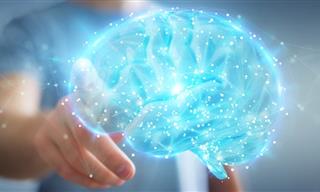As the name hints, testosterone is a hormone produced in males by the testicles. Testosterone is commonly known as the male sex hormone; after all, it’s largely responsible for sexual development, sperm production, and even one’s sex drive. What most people don’t realize is that this hormone also plays a massive role in other bodily functions, including bone density and the production of red blood cells. Therefore, a drop in testosterone levels can impact the body in many meaningful and unpleasant ways.
Blood levels below 300 ng/dL are considered low testosterone. But most of us can't monitor our blood levels all the time, so we have to rely on more subjective signs. Look out for the following symptoms of low testosterone.
Hair loss
Balding is a normal part of aging for older men, and in many cases, it’s hereditary and nothing to worry about. However, males with low testosterone may start losing facial hair and hair all over the body. In this case, hair loss can point to dropping testosterone levels. All this is because testosterone plays a major role in hair growth.
A reduction in sex drive
Testosterone is essential for maintaining libido (sex drive). Although many males experience a gradual decline in sex drive with age, it can also be a sign that something is not right. Note that people with low testosterone levels will usually notice a more abrupt change in libido compared to those with an age-related reduction in sex drive.
Erectile issues
Testosterone signals the brain to start producing nitric oxide - a compound that triggers the chemical reactions required for an erection to begin and be maintained. When testosterone levels drop, achieving an erection can become more challenging.
That being said, erectile problems can also be caused by other health conditions, so increasing testosterone levels naturally or through testosterone isn’t always helpful. Such health conditions include:
- Thyroid disorders
- Diabetes
- Hypertension and high cholesterol
- Mental health issues, such as depression, anxiety, and stress
- Smoking and alcohol.
Hot flashes
Hot flashes are usually associated with menopause, but men can get them too. A hot flash is suddenly experiencing intense heat accompanied by sweating, skin redness, and night sweats. Men with low testosterone are known to experience night sweats and hot flashes.
Persistent fatigue
Feeling tired from time to time is completely normal, but when you never seem to feel full of energy and always feel drained, this can point to an underlying health issue. Make no mistake - fatigue should not be ignored, as it can interfere with your daily life, eradicating any sign of enthusiasm or motivation.
Although fatigue can be caused by a wide variety of health conditions, it’s worth noting that it may be a sign of a testosterone deficiency too, especially if it appears with some of the other symptoms mentioned on this list.
Unintended weight gain
A testosterone deficiency may make you more likely to gain excess body fat. In addition, people deficient in the hormone may sometimes develop a symptom called gynecomastia, or breast enlargement, as a result of an imbalance of estrogen and testosterone in the body.
Bone mass reduction
Osteoporosis is another health condition we often associate with females. However, males who have lower testosterone levels can also suffer from bone loss. This is because testosterone actually plays a key role in bone strength. The condition is especially common in older men, which, in turn, increases the risk of dangerous bone fractures.
Trouble gaining muscle mass
We’ve already established that low testosterone can make you put on excess fat and weaken your bones, but there’s another way it can influence your fitness. The hormone regulates the body’s ability to gain muscle mass too, so reduced levels of the hormone can make it more difficult for a person to gain muscle or may even cause a reduction in muscle mass.
All that being said, there is a kind of silver lining. According to a 2016 article, the strength and function of the muscles do not diminish, even when muscle mass loss does occur.
Anemia
Adults with lower testosterone levels are at a higher risk of anemia, a condition where the blood lacks enough red blood cells to carry enough oxygen to all the cells. Studies confirm that patients with low levels of the hormone often have reduced levels of hemoglobin - the protein in red blood cells that carries oxygen. Hormone replacement therapy is effective at improving the hemoglobin count according to research.
Symptoms of anemia to look out for:
- Rapid heart rate
- Dizziness
- Leg cramping
- Sleep problems
- Reduced concentration.
Memory and mood

Irritability and depression go hand in hand with testosterone deficiency, as does a reduction in cognitive health in general, and memory in particular. The available research confirms that testosterone replacement therapy significantly helps depression symptoms and moderately improves memory in older patients with low testosterone.
Testicle, penis size, and semen production
Testosterone is necessary for developing sexual characteristics during puberty. This includes the penis and the testicles. When testosterone levels are too low, this could contribute to disproportionately smaller-sized organs. It needs to be noted, however, that other conditions, such as hypogonadism, prostate surgery, varicocele, and Peyronie’s disease can contribute to this symptom as well.
Last but not least, testosterone is responsible for controlling the production of semen - the fluid that aids sperm swim toward the egg. In fact, reduced semen levels are often the first symptom of dropping testosterone levels. Sadly, reduced semen levels can result in fertility issues too.
Can women also have low testosterone?
It may come as a surprise, but the ovaries produce testosterone as well. Although testosterone is often labeled as the “male” sex hormone, it’s actually vital for women as well. More specifically, testosterone is essential for cognition, bone strength, muscle growth, and sex drive in women too. And like in men, some research suggests that testosterone levels in women tend to drop with age.
Unfortunately, research on the health effects of low testosterone in females is very limited; so much so that there are no current guidelines as to what levels of testosterone should be deemed low in women.
Related Article: 9 Natural and Proven Ways to Boost Testosterone Levels
What causes low testosterone?
Aging is a common cause of low testosterone in males. The American Urological Association reports that 40% of males 45 or older have low testosterone levels. The first symptoms may be subtle, but as they progress, treatment may become necessary.

Apart from aging, such conditions as testicle injuries, liver and kidney damage, immune conditions, pituitary gland conditions, infections, and metabolic syndrome may also lead to low testosterone. Your lifestyle, habits, and medical treatments also increase your risk of low testosterone. These include:
- Alcohol use
- Stress
- Obesity
- Cancer treatments
- Certain medications.
When to see a doctor
If you experience any of the above-listed symptoms of low testosterone, you can see your physician and ask for a testosterone blood test. Those diagnosed with low testosterone can be advised to begin testosterone replacement therapy to get those testosterone levels back to normal. This is a lifelong treatment, and it comes in a variety of medications - from pills to patches to gels and injections. Talk to your doctor to check if this treatment is right for you.
H/T: Healthline, Verywell Health, Medical News Today, Cleveland Clinic
 Go to BabaMail
Go to BabaMail

































